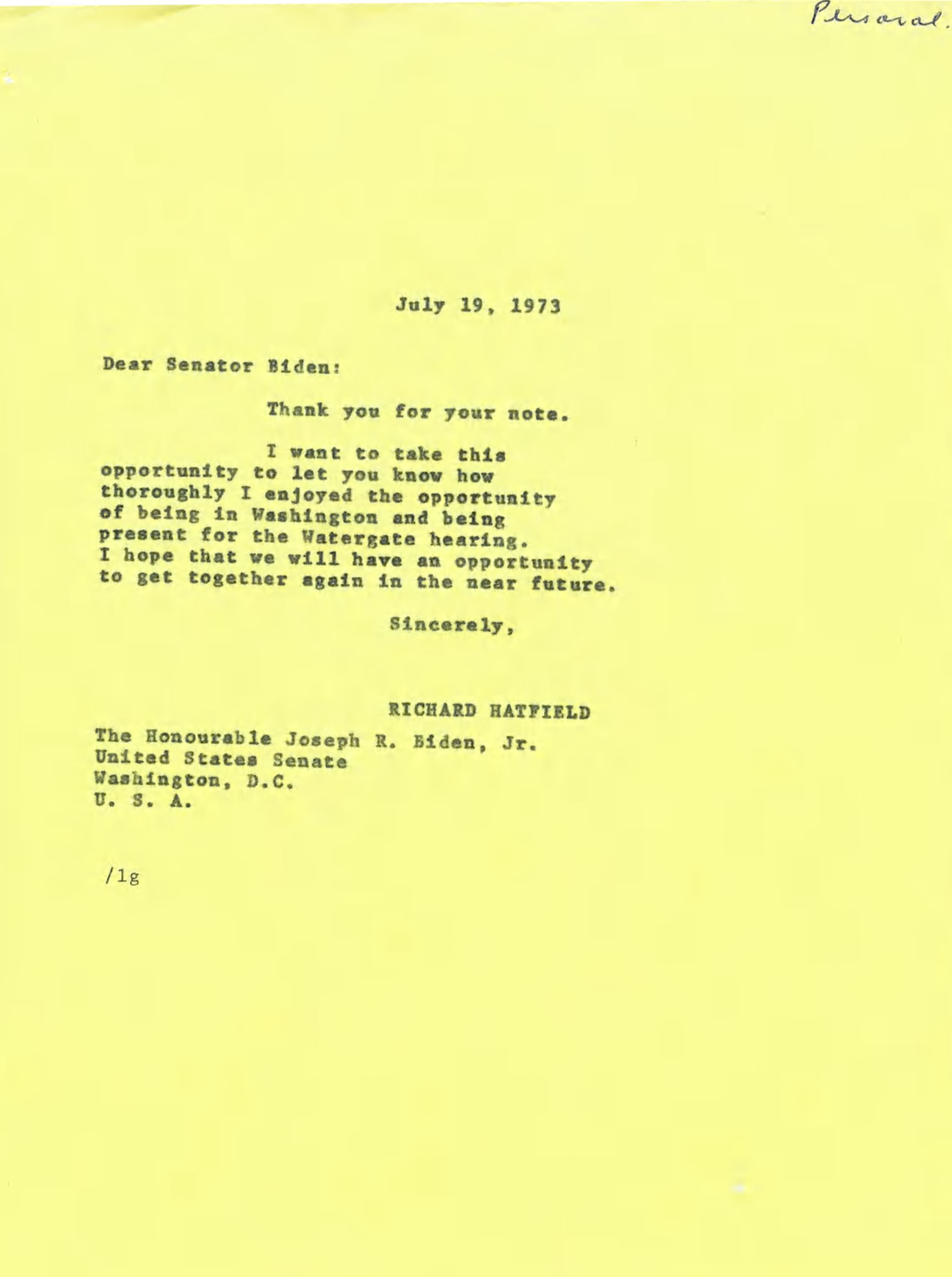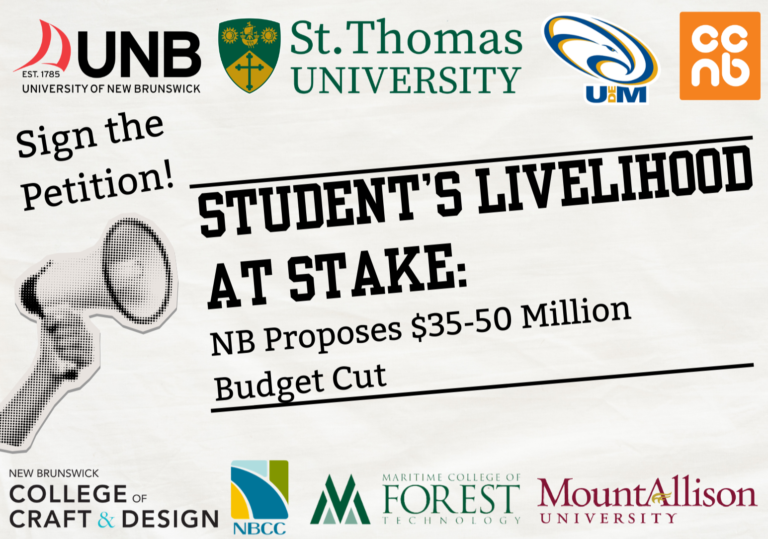Letters found between future US President and former NB Premier
Letters found between future US President and former NB Premier

A discovery at the Provincial Archives of New Brunswick revealed a connection between former New Brunswick Premier Richard Hatfield and US President-Elect Joe Biden.
Kate McGregor, an intern at the Provincial Archives, was making her way through boxes of documents from the office of former New Brunswick Premier Richard Hatfield. On Thursday, October 29, McGregor came across a letter that then Junior Senator Joseph Biden wrote to Hatfield. The letter, dated July 10, 1973, was shortly followed by a reply from Hatfield on July 29.
The Provincial Archives of New Brunswick, established in 1967, are located on the University of New Brunswick campus in Fredericton. The archives are home to collections of preserved documents related to the history of New Brunswick.
“From the contents of the letters themselves, it appears that the meeting between the two was short and it was highly unlikely that they met or corresponded again,” said McGregor.
Richard Hatfield, the 26th Premier of New Brunswick, was the leader of the New Brunswick Progressive Conservative Party and held office as Premier during a long tenure from 1970-1987. After being ousted in the infamous 1987 New Brunswick General Election, Hatfield was replaced by New Brunswick Liberal Party Leader Frank McKenna.
Hatfield and Biden met in Washington, DC around the time of the Richard Nixon Watergate hearings. Biden had only been sworn in to the US Senate in January of 1973, and he wrote the letter to Hatfield before he completed his first year in office. As far as McGregor can tell, these letters were their final correspondence.

There are over 140 boxes of documents from Premier Hatfield’s office that Kate McGregor is sorting. There remains a potential for additional responses to be discovered, though the formal nature of the letters suggests it is unlikely that any significant communication developed between the two politicians.
According to Provincial Archives manager Joanna Aiton Kerr, there are currently 83,191 boxes of records in the archive’s repository.
“Before records are stored in the repository, an archivist reads them or at least creates a general summation of the contents of a group of records so that researchers can find them. However, years, even decades can go by between the time an archivist reads them and a researcher reads them,” said Kerr, explaining why the Biden-Hatfield letters, amongst many other documents, are discovered so many years after their creation.
Keep in touch with our news & offers
Subscribe to Our Newsletter
Thank you for subscribing to the newsletter.
Oops. Something went wrong. Please try again later.






